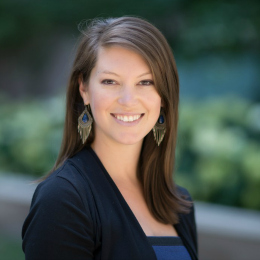Chemotherapy before surgery found cost-effective in patients with advanced ovarian cancer
January 24, 2018
In the short term, neoadjuvant chemotherapy (NACT) was found to be more cost-efficient than primary surgery in women with advanced stage epithelial ovarian cancer. Additionally, NACT resulted in a greater boost to quality-adjusted life-years per patient.

Dr. Daniel Erim

Dr. Stephanie Wheeler
These findings are the result of a recent study co-authored by Daniel Erim, MD, doctoral student, and Stephanie Wheeler, PhD, associate professor, both in the Department of Health Policy and Management at the UNC Gillings School of Global Public Health.
Neoadjuvant chemotherapy is a first step used to shrink a tumor before the main treatment, which typically is surgery. The study compared the cost-effectiveness of two treatment plans, each with a 7-month time horizon. In one plan, patients in a randomized controlled trial received three cycles of NACT, followed by surgery, followed by three additional cycles of chemotherapy. In the other, plan, patients received primary surgery followed by six cycles of chemotherapy.
The analysis, which considered elements including possible complications of chemotherapy versus surgery, treatment costs and quality-adjusted life-years gained, showed that the treatment plan including NACT resulted in a savings of $7,034 per patient and offered an average 0.035 quality-adjusted life-year increase.
In the short term, therefore, neoadjuvant chemotherapy is a cost-effective alternative to primary surgery in women with advanced stage epithelial ovarian cancer. These results may translate to longer term cost-effectiveness as well; however, data from the randomized controlled trials is continuing to mature.
The full article, titled “Cost effectiveness of neoadjuvant chemotherapy followed by interval cytoreductive surgery versus primary cytoreductive surgery for patients with advanced stage ovarian cancer during the initial treatment phase,” was published online Dec. 19, 2017, by the journal Gynecologic Oncology.
Gillings School of Global Public Health contact: David Pesci, director of communications, (919) 962-2600 or dpesci@unc.edu
